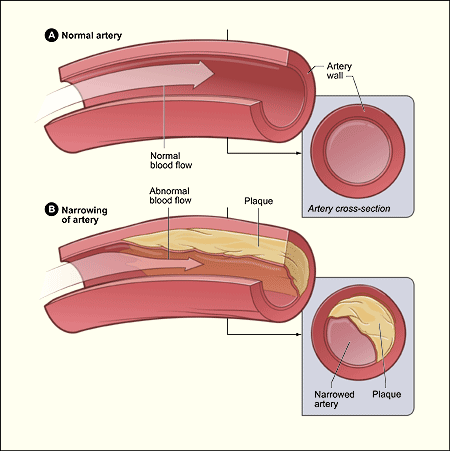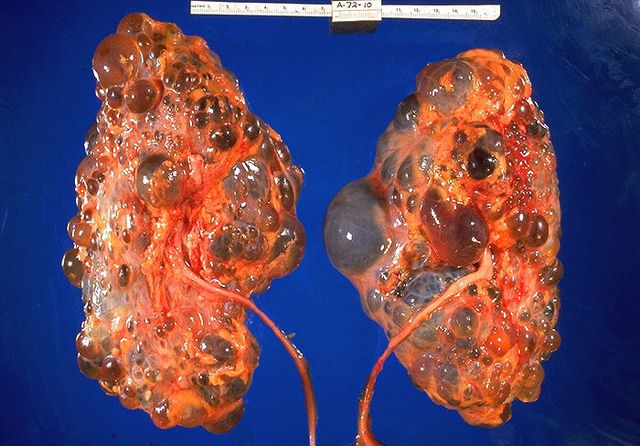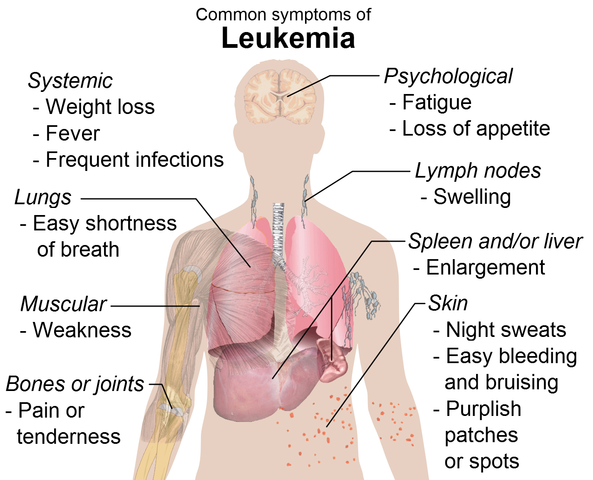Sexual desire, erection, and stamina does not only involve raging sex hormones, but your psychological and physical health problems can also directly affect them. Whether chronic, temporary or due to an injury; these health conditions can sicken your sex life. Interestingly, the list below shows illnesses that not only makes you incapable, but can make you oversexed:
 1. Vascular Disease
1. Vascular Disease
One of the main physical causes of erectile dysfunction is vascular diseases, such as atherosclerosis, high cholesterol and hypertension.
These vascular diseases affect blood vessels and reduce blood flow to the organs in your body, including your penis. So, if you want a rocking sex life, you might need to shift to a healthy and active lifestyle.
2. Diabetes
Nerve and artery damage are often complications of diabetes, which can make it difficult for you to achieve erection.
 Approximately 35 to 50 percent of men with diabetes experience erectile dysfunction.
Approximately 35 to 50 percent of men with diabetes experience erectile dysfunction.
If you still want to enjoy and maintain an active sex life despite your health condition, try using male enhancing pills. One of the most effective is ExtenZe.
It’s an all-natural male supplement proven to be safe, and there’s no need for a prescription. However, consult with your physician just to be sure there are no complications to your health and it doesn’t interfere with any other medications you take.
3. Kidney Disease
 If your kidney is not functioning properly, it can cause chemical changes in your body, which could affect hormone production, blood flow and energy levels.
If your kidney is not functioning properly, it can cause chemical changes in your body, which could affect hormone production, blood flow and energy levels.
It could lower your sex drive and stamina. Moreover, drug medications for kidney disease can further aggravate erectile dysfunction.
4. Depression
Chronic depression often makes a person feel isolated or withdrawn. You cannot seem to function like you do, and you lose interest in things you used to enjoy. It can adversely affect every aspect of your life, including your sex life. You find it hard to achieve arousal by sexual stimulation, which makes it difficult for you to achieve erections, and moreover to perform and achieve orgasm.
 More than being not in the mood, chronic depression is a medical condition that requires treatment.
More than being not in the mood, chronic depression is a medical condition that requires treatment.
Unfortunately, antidepressants, particularly SSRI or serotonin reuptake inhibitors can add to the adverse effects of depression to your libido.
The effects of SSRI may vary, but if you’re one of the unlucky ones, talk to your physician about your sexual concerns, so you can switch medications.
5. Andropause
 Andropause, or male menopause, is the result of the gradual decline in testosterone levels that normally comes with aging. Testosterone levels start to decline as early as the age of 30 and could reach a certain level at a certain age where it can significantly affect your sexual functions. Low libido and difficulty in achieving and maintaining a solid erection are the most common symptoms although the intensity may vary.
Andropause, or male menopause, is the result of the gradual decline in testosterone levels that normally comes with aging. Testosterone levels start to decline as early as the age of 30 and could reach a certain level at a certain age where it can significantly affect your sexual functions. Low libido and difficulty in achieving and maintaining a solid erection are the most common symptoms although the intensity may vary.
The only way to check your T levels is through a blood test, and in many cases, hormonal replacement is the most effective remedy for low T levels due to aging.
If you’re feeling unusually tired and emotionally down for no reason at all, your T levels may have plummeted. If those solid erections during sleep are gone, then maybe you need to have your T levels checked.
6. Neurological Disorders
The nervous system composed of the brain, spinal cord, and neurons is responsible for your thoughts, movements and responses. Thus, neurological disorders will make it difficult for you to respond to sexual stimulation and much more to achieve erection.
And if you’re able to perform sexually, there will be reduced sensations, which leads to difficulty reaching orgasm or low-quality orgasm. Most people overlook neurological disorders such as multiple sclerosis, stroke and spinal cord injury as causes for erectile dysfunction, but you should know that it can potentially impact your sexual ability.
7. Hypersexual Disorder
Hypersexuality. Well, you could instantly guess what this word means with the prefix, “hyper.” It’s when your libido reaches sky high and remains floating up there. In men, it is known as satyriasis, and in women it’s what you’d call nymphomania. You’d probably think it would be absolutely awesome to have this kind of libido.
 However, it isn’t a good thing, because if your partner is a nympho, don’t expect her to be exclusive only to you, especially if you can’t keep up wither. Or her with you, for that matter.
However, it isn’t a good thing, because if your partner is a nympho, don’t expect her to be exclusive only to you, especially if you can’t keep up wither. Or her with you, for that matter.
Hypersexuality is a compulsion beyond any person’s control. It is more commonly known as a symptom of various psychological and neurological disorders, including borderline personality disorder, bipolar disorder, Pick’s disease, Alzheimer’s and brain injuries.
Being hypersexual, either you or your partner, could create many complications as an individual, and in your relationship including your sex life. Less sex is bad, but too much will not be any better.
8. Priapism
Is there a single man who does not want a long-lasting erection? But, if it’s an erection that happens to last more than four hours together with pain, you would wish for a 14-minute normal erection. Priapism is a persistent condition even without stimulation where the blood is trapped in the penis and unable to drain. If not treated with urgency, it could cause chronic erectile dysfunction.
 Priapism can occur in men at any age even in newborn babies. It is categorized into two: low-flow and high-flow. The first can be caused by various diseases such as leukemia, sickle-cell, and malaria, while the latter is due to injury to the penis or perineum.
Priapism can occur in men at any age even in newborn babies. It is categorized into two: low-flow and high-flow. The first can be caused by various diseases such as leukemia, sickle-cell, and malaria, while the latter is due to injury to the penis or perineum.
Other causes include spinal cord injuries, marijuana and cocaine abuse, black widow spider bites and carbon monoxide poisoning.
9. Sexsomnia
Also known as “sexsleep,” it’s like sleepwalking, but the thing is, you have sex while you’re asleep or unconscious, and then wake up not remembering what you did. It’s a disorder beyond your control because obviously you’re asleep, and it could happen to you every night.
Good thing if you always sleep in bed with your partner. What if you fell asleep somewhere else and there happens to be another girl within the area. Next thing you know, you’re a cheater. Some of these health conditions lead you to a zero sex life, while some make you have too much sex in very inconvenient situations. Either way, it can still negatively impact your sex life.


 1. Vascular Disease
1. Vascular Disease